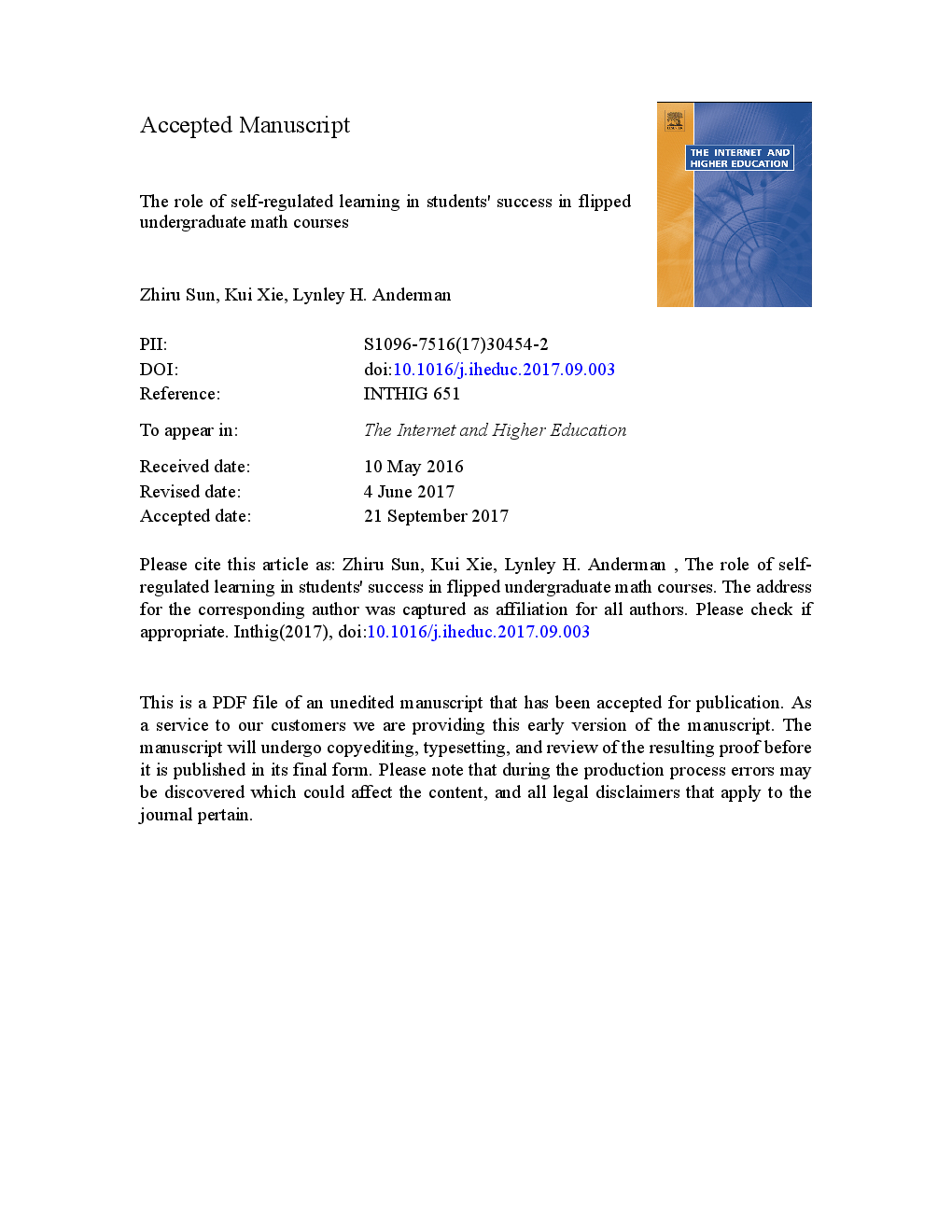ترجمه فارسی عنوان مقاله
نقش یادگیری خودتنظیم در موفقیت دانش آموزان در دوره های ریاضی دوره کارشناسی شده
عنوان انگلیسی
The role of self-regulated learning in students' success in flipped undergraduate math courses
| کد مقاله | سال انتشار | تعداد صفحات مقاله انگلیسی |
|---|---|---|
| 122467 | 2018 | 61 صفحه PDF |
منبع

Publisher : Elsevier - Science Direct (الزویر - ساینس دایرکت)
Journal : The Internet and Higher Education, Volume 36, January 2018, Pages 41-53
ترجمه کلمات کلیدی
کلاس لغزنده، یادگیری خودمراقبتی، خود کارآمدی، راهکارهای آموختن، مدل سازی معادلات ساختاری،
کلمات کلیدی انگلیسی
Flipped classroom; Self-regulated learning; Self-efficacy; Learning Strategies; Structural equation modeling;
ترجمه چکیده
بر اساس نظریه یادگیری خود تنظیم شده، در این پژوهش، روابط بین پیشرفت تحصیلی و سه ساختار کلیدی خود تنظیمی - دانش دامنه پیشین، خودکارآمدی و استفاده از استراتژی های یادگیری - در دو دوره کارشناسی ریاضی کارشناسی مقطع کارشناسی مورد بررسی قرار گرفت. مدل سازی معادلات ساختاری به عنوان روش اولیه برای تحلیل روابط در محیط های یادگیری قبل از کلاس و در کلاس های مقطع دبیرستان مورد استفاده قرار گرفت. نتایج مطالعه نشان داد که خودکارآمدی دانشجویان در یادگیری ریاضی و استفاده از استراتژیهای کمک به دنبال موفقیت تحصیلی در محیط های یادگیری قبل و در کلاس، به طور معناداری مثبت بود. علاوه بر این، خودکارآمدی دانش آموزان در یادگیری مشارکتی تأثیر مثبتی بر استفاده آنها از کمک به دنبال راهکارها در هنگام یادگیری درسی در کلاس داشت. مفاهیم نظری و آموزشی مورد بحث قرار گرفته است.

